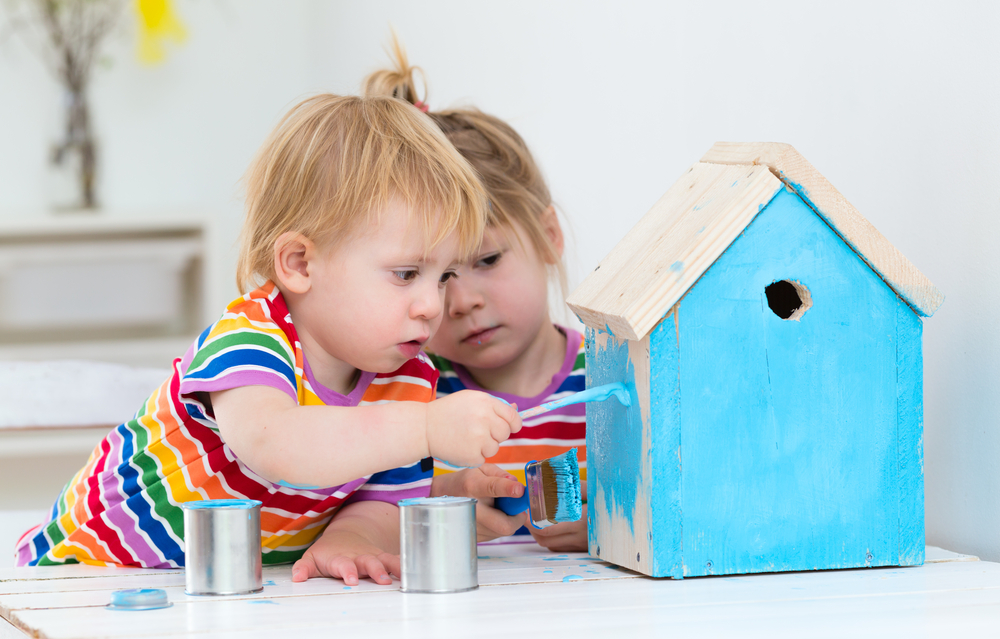Basic subtraction skills Math Worksheets for Ages 3-7
9 filtered results
-
From - To
Enhance your child's early math skills with our Basic Subtraction Skills Math Worksheets, designed for ages 3-7. These engaging printable worksheets introduce young learners to essential subtraction concepts, helping them practice and reinforce their abilities in a fun and interactive way. Perfect for preschool to first-grade students, our worksheets use colorful imagery and simple problems to make learning effortless and enjoyable. Develop your child's mathematical foundation, boost their confidence, and support their educational journey with these tailored resources that cater to various learning styles and paces. Make math fun with Kids Academy’s expertly crafted subtraction worksheets.
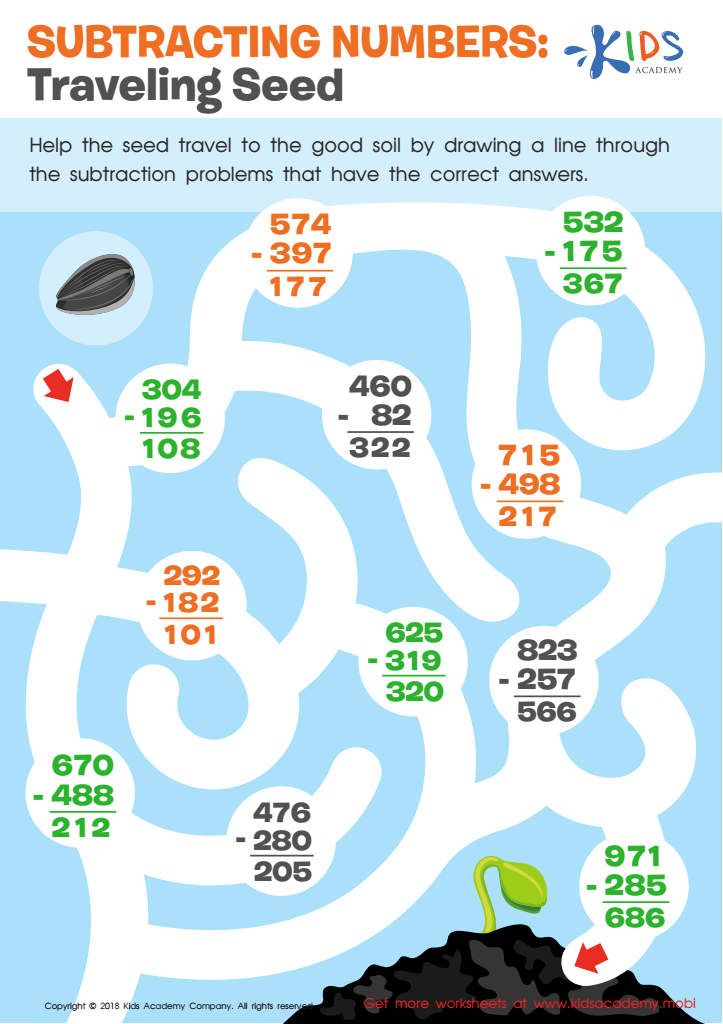

Subtracting Numbers: Traveling Seeds Worksheet
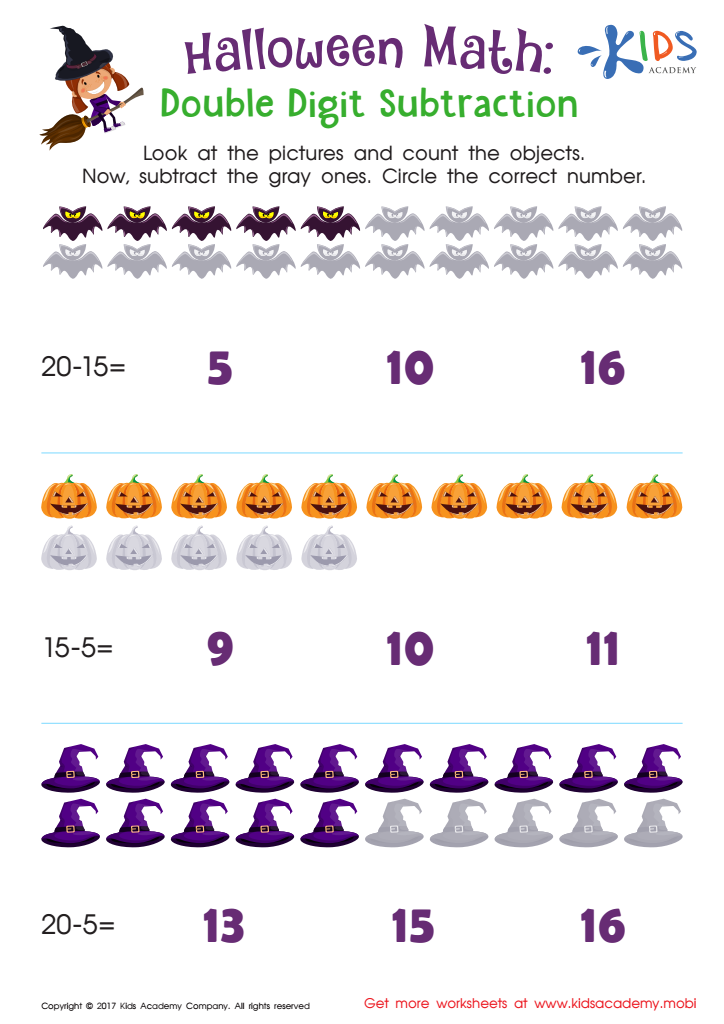

Halloween Math Subtraction Worksheet
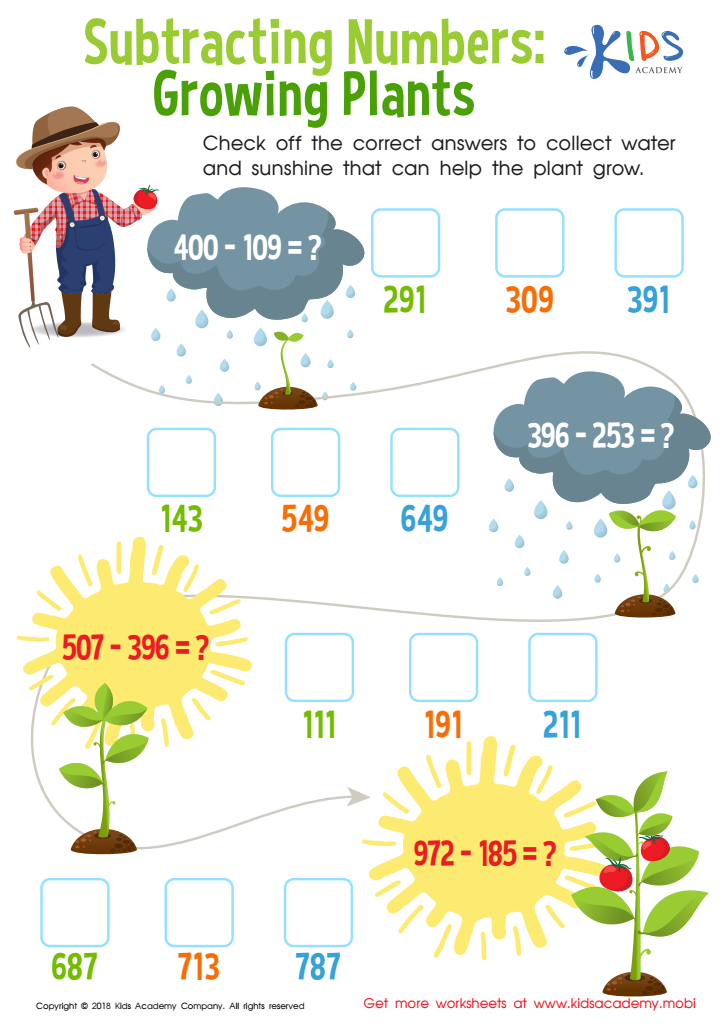

Subtracting Numbers: Growing Plants Worksheet
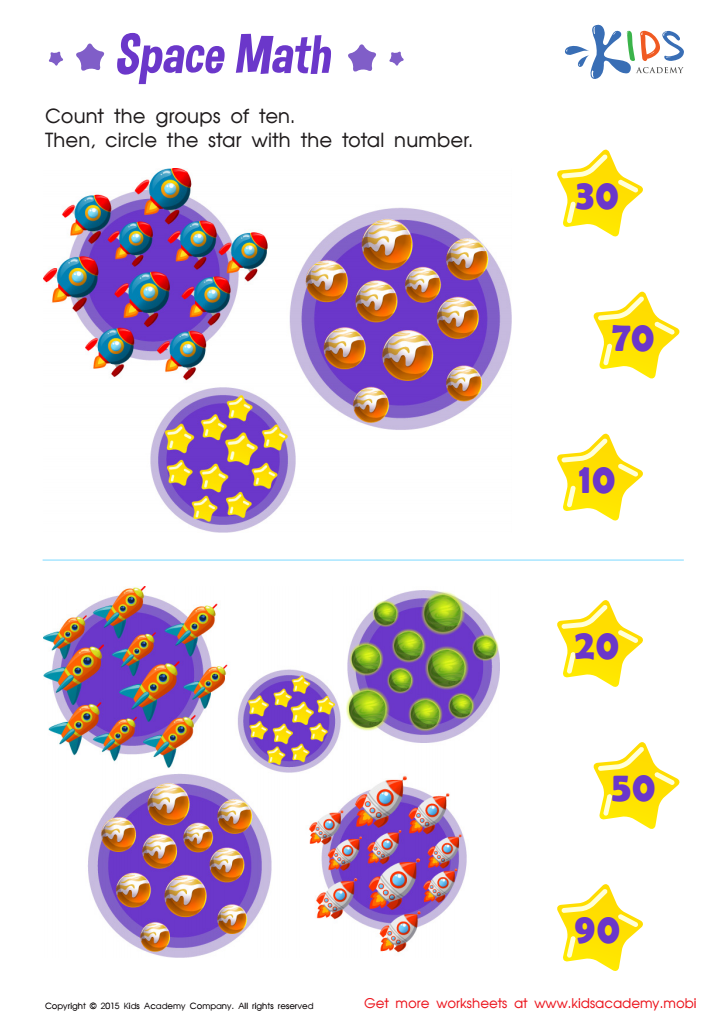

Learn dozens: Space math Worksheet
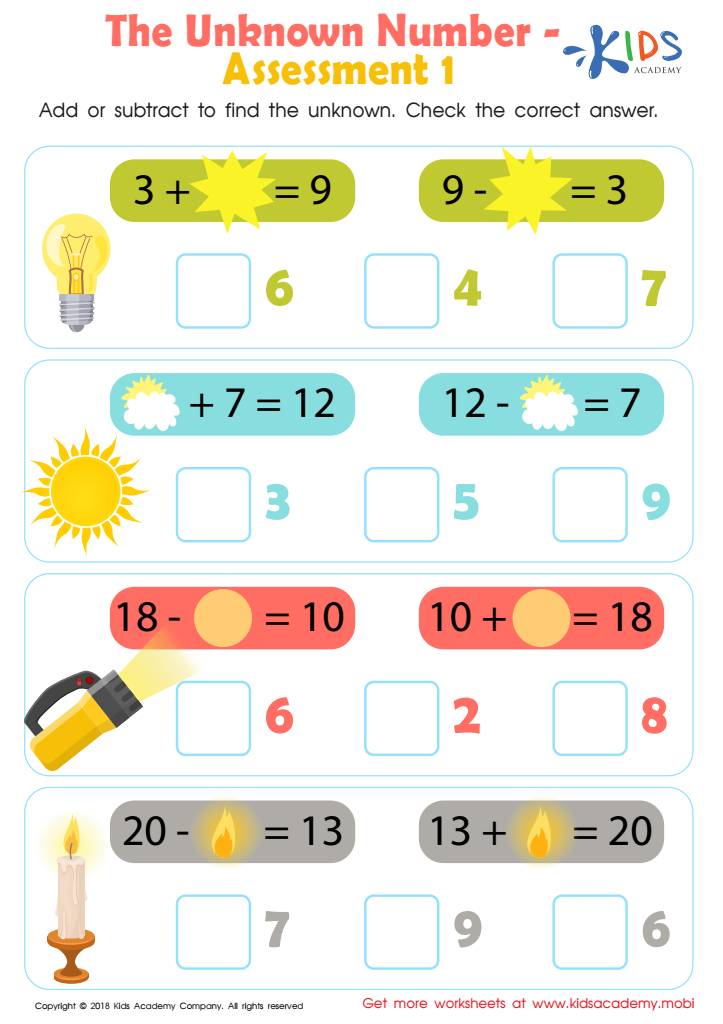

The Unknown Number: Assessment 1 Worksheet
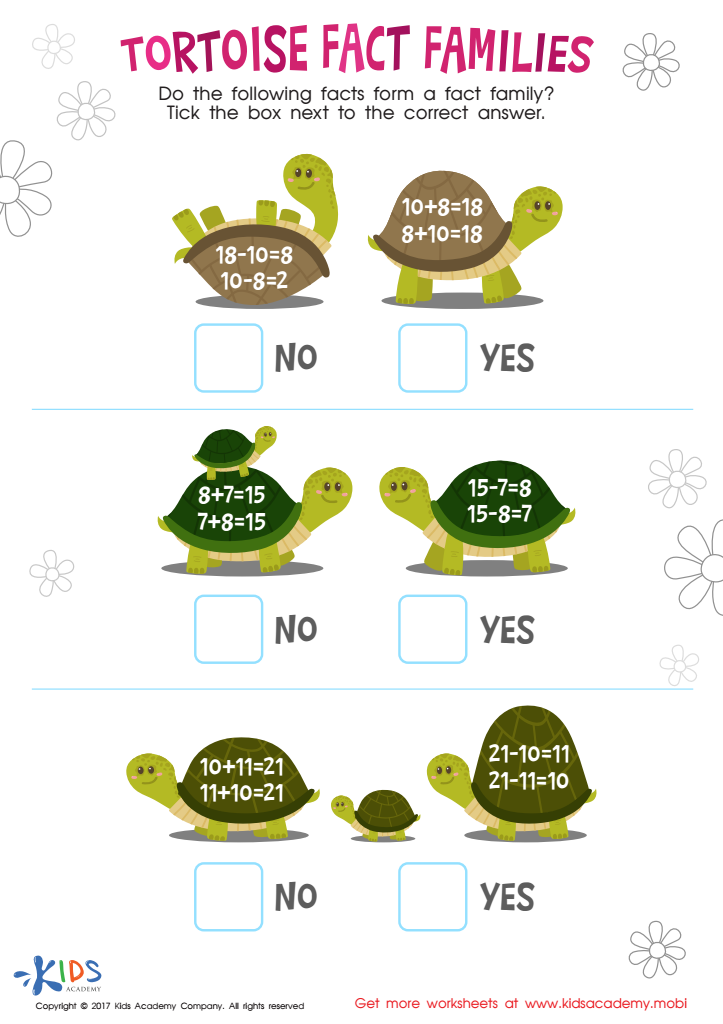

Tortoise Fact Families Printable
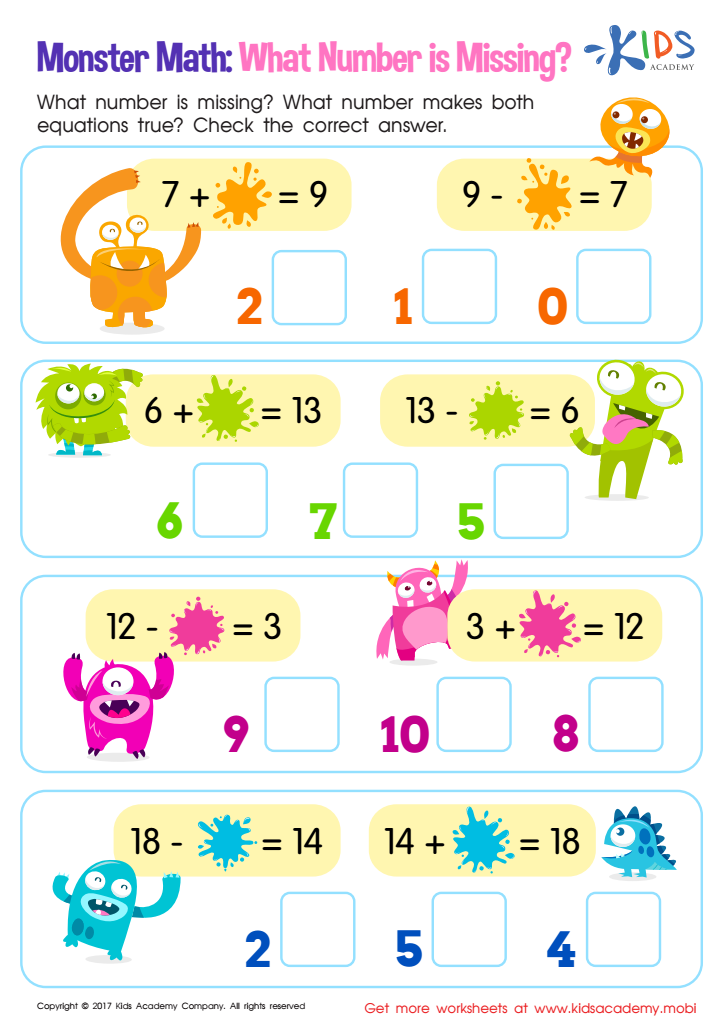

Missing Number: Monster Math Worksheet
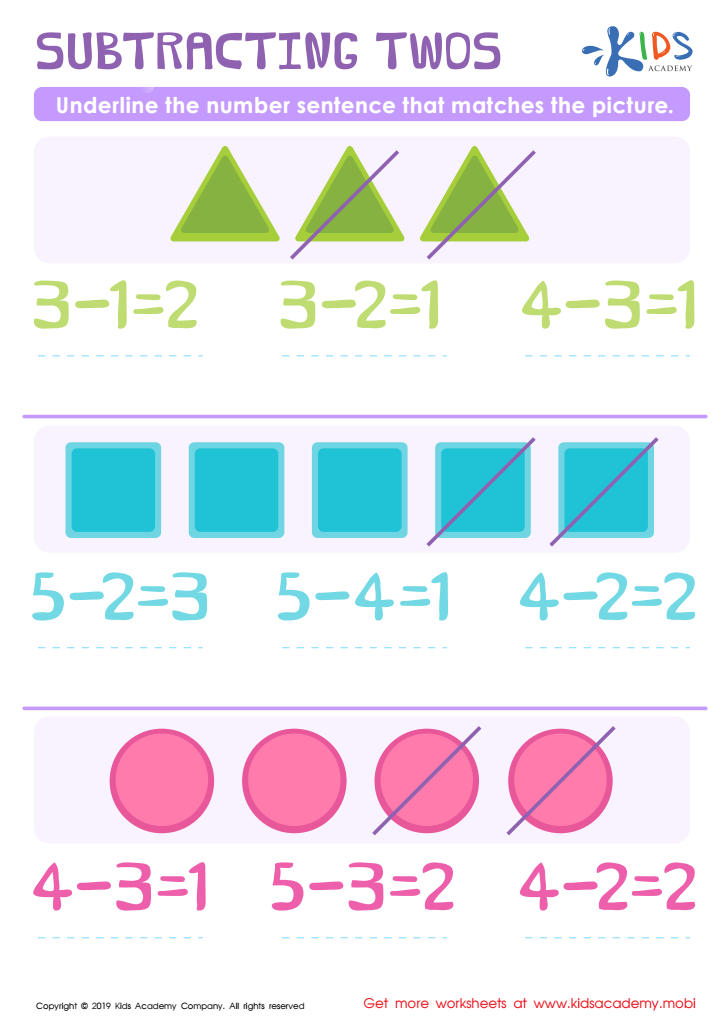

Subtracting Twos Worksheet
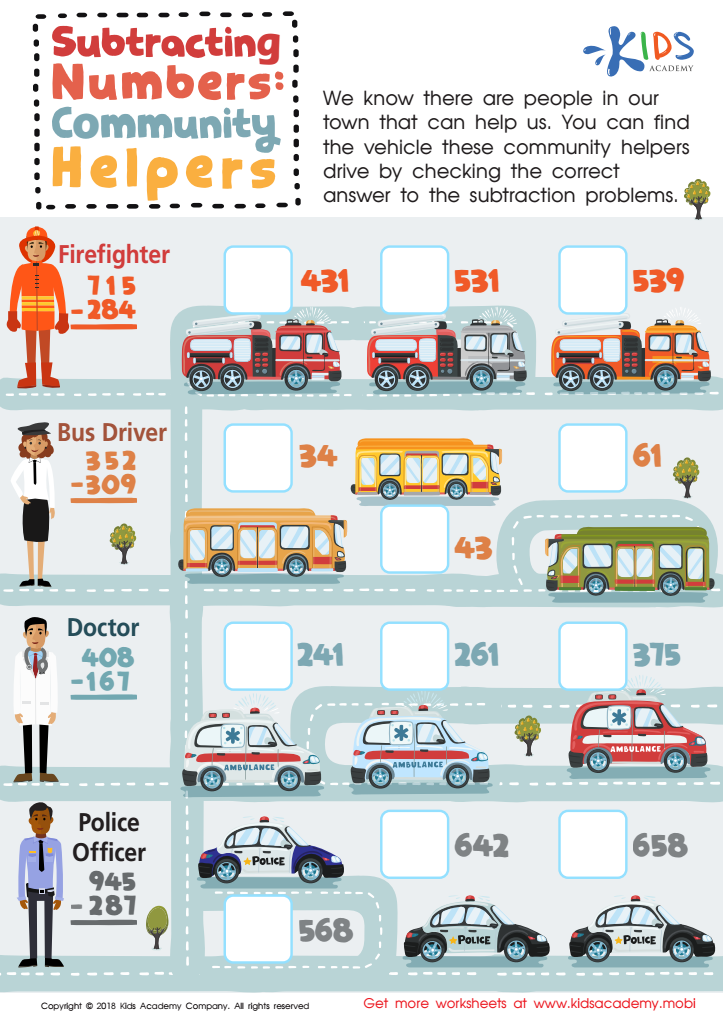

Subtracting Numbers: Community Helpers Worksheet
Basic subtraction skills are critical for young children aged 3-7 and should be a priority for parents and teachers. At this developmental stage, children's brains are highly receptive and capable of absorbing new information, so laying a strong mathematical foundation is crucial. Subtraction, one of the fundamental operations in math, is essential for understanding more complex arithmetic operations like division and algebra. It also nurtures logical reasoning and problem-solving skills, essential aptitudes in everyday life.
For instance, subtraction helps children navigate real-world scenarios: counting objects, distributing items evenly, and understanding the concept of taking away or missing out—basic skills that recur in tasks like shopping, sharing among peers, and time management even in later years. Furthermore, developing subtraction skills enhances cognitive abilities such as memory, attention to detail, and pattern recognition.
Teachers who emphasize subtraction also support their students' overall academic growth, including literacy, as many educational games and activities blend reading and arithmetic. Parents who engage in simple, playful subtraction activities foster a positive attitude toward math at home. This kind of balanced, early support builds a robust foundation for future academic success and marks a child’s initial steps toward becoming an independent thinker comfortable with numbers.
 Assign to My Students
Assign to My Students



